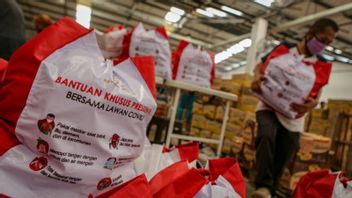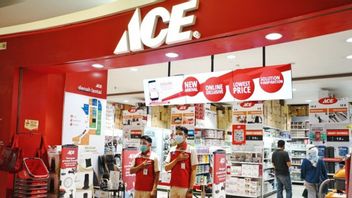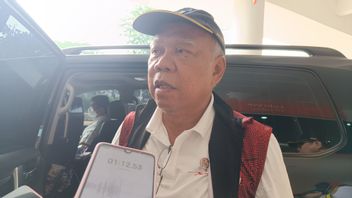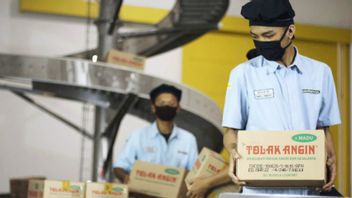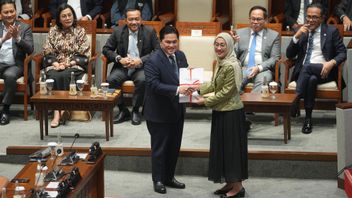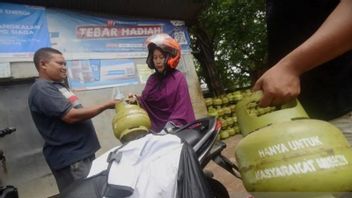
JAKARTA - The Ministry of Industry (Kemenperin) estimates that Indonesia's manufacturing purchasing manager index (PMI) can reach its highest point if the low-cost gas (HGBT), P3DN and import relaxation revisions are carried out.
Meanwhile, S&P Global reported that Indonesia's manufacturing PMI was at the level of 51.9 in January, up 0.7 points from the previous month's achievement at 51.2.
This expansive phase is the highest point since May 2024.
Spokesperson for the Ministry of Industry Febri Hendri Antoni Arif said this condition shows that business activities by industry players are increasingly optimistic about entering 2025.
"With the high trust of industry players to continue to run their business, we are also optimistic that the national economy can grow positively," Febri said in his official statement, quoted on Tuesday, February 4.
The increase in the manufacturing index is also reflected in the increasing purchase of raw materials by business actors to be able to meet the surge in market demand in the following months.
Production is underway to supply domestic market and export needs.
The increased production activity made a number of companies decide to recruit in January and add to their workforce for two months.
"This proves that if industrial activity occurs, it will have a positive impact on employment. This is in line with the government's efforts to encourage the creation of new jobs or job creation," he said.
It is known that Indonesian manufacturing PMI in January 2025 was able to surpass Taiwanese manufacturing PMI (51.1), South Korea (50.3), China (50.1), the United States (50.1), Thailand (49.6), Vietnam (48.9), Japan (48.8), Malaysia (48.7), Myanmar (47.4), England (48.2) and Germany (44.1).
"At the Asean level, Indonesia is the only country that experienced an expansionary increase in manufacturing PMI January 2025 compared to December 2024. Many others experienced a decline in level, while Malaysia rose but were still at the contraction level," said Febri.
According to Febri, Indonesian manufacturing PMIs can achieve higher achievements if a number of pro-business policies are carried out.
For example, the relaxation of imported products has been revoked, the extension of certain natural gas prices (HGBT) and the strengthening of P3DN.
Not only that, the provision of fiscal and non-fiscal incentives can also encourage industrial growth so that the 8 percent economic growth target can be achieved.
"So, to achieve the national economic growth target of 8 percent, there needs to be policies and stimulus that can stimulate our industry players to be more active in running their business," explained Febri.
SEE ALSO:
Febri assessed that these policies will maintain the needs of raw materials, increase investment and exports, boost the competitiveness of the industrial sector to optimize local products in the domestic market.
"Many industry players receive HGBT, many appreciate President Prabowo's policy regarding the extension of the HGBT program. Meanwhile, the realization of the revocation of the import relaxation policy is still awaited by industry players," he added.
The English, Chinese, Japanese, Arabic, and French versions are automatically generated by the AI. So there may still be inaccuracies in translating, please always see Indonesian as our main language. (system supported by DigitalSiber.id)




